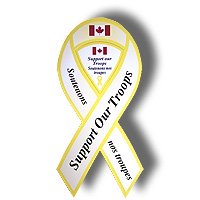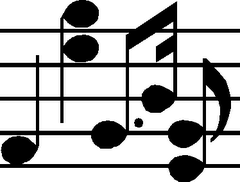Soldiers from a variety of NATO countries take part in the Terry Fox Run.
Photo Credit: Bill Graveland/CP)
.

England takes part in the Terry Fox Run at Kandahar Air Field, Afghanistan on Sunday Oct. 21, 2007 . (Photo Credit: Bill Graveland/ CP)

England takes part in the Terry Fox Run at Kandahar Air Field, Afghanistan on Sunday Oct. 21, 2007 . (Photo Credit: Bill Graveland/ CP)
Heavy military vehicles rumble down gravel roads, churning up choking clouds of dust at Kandahar Air Field .
KANDAHAR, Afghanistan — There are some things that are just so Canadian that even a hot desert sun and being 11,000 kilometres away from home can't diminish it.
About 70 soldiers from a variety of NATO countries serving in Afghanistan joined the Terry Fox Run at Kandahar Air Field on Sunday, raising money for cancer research and to honour the memory of Fox, who attempted to run across Canada in his Marathon of Hope in 1979 after losing most of his right leg to cancer two years earlier.
Heavy military vehicles rumbled down gravel roads, churning up choking clouds of dust, as the participants ran along the 11-kilometre route which included a lap around the airfield's landing strip as helicopters hovered overhead and military jets took off and landed with deafening roars.
"It takes you back to being in Canada again because it is the Terry Fox run,'' said Master Petty Officer Matt O'Hara, 52, who has been in the service for 30 years and is originally from Edmonton. "It's something truly Canadian. Terry Fox was a Canadian hero.''
The run is something extremely personal for O'Hara.
"I was diagnosed two years ago with pancreatic cancer and due to cancer research that's why I'm alive today,'' he revealed. "When I first saw the numbers, it was a 98-per-cent mortality rate and I was in the two-per-cent cure rate. Today, due to research, the cure rate is about 10 per cent.''
The Terry Fox run is now held in 60 countries and it's the world's largest one-day fundraiser for cancer research.
Posters of Fox from his Marathon of Hope were placed strategically around the base. That makes it easy for even those who haven't heard of him to figure out what it is about explained Shelly Moore, one of the organizers.
"There's a lot of explanation involved, as well as to who Terry Fox is, but the image says a lot. The picture of Terry running down the road is really the quintessential Canadian picture,'' said Moore, a fitness, sport and recreational co-ordinator. "That picture is worth a thousand words.''
The Terry Fox run is one of the most popular events at the base.
"I've done this overseas,'' said BJ La Porte, a former soldier now working as a civilian at Kandahar Air Field. "This is not weird for me. Most of my Terry Fox runs have been done overseas. This is very Canadian.''
A line of tiny Canadian flags marked both the beginning and end of the run, but it wasn't a Canadian runner who crossed the line first, second or even third. That honour went to a trio of British soldiers.
Warrant Officer Tarquin Kitchen crossed the line in second place and wasn't surprised his Canadian cousins were lagging far behind.
"Of course not. You can't win your own competitions can you?'' he said with a laugh.
But at least Kitchen was aware of who Terry Fox was.
"This is my third run,'' he said. "I did a couple in Damascus. This is the harder one. The other ones were much cooler.''
It was the poster that convinced Lance Cpl. Duncan Moore, of York, England to join the run. But even he found the heat and dust a challenge.
"I was a bit knackered on the backstretch,'' he admitted as he wiped away the sweat.
For O'Hara, his ongoing battle against the deadly disease will continue for the rest of his life as he remains part of a clinical trial. He wishes things had ended differently for Fox, who died in 1981.
He said he wished Fox could have been in Kandahar to see the fruits of his labour.
"I think he would be quite impressed with what he's got started here. It's gone on for 27 years and it's amazing.''






























No comments:
Post a Comment